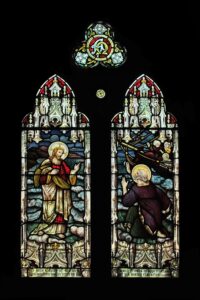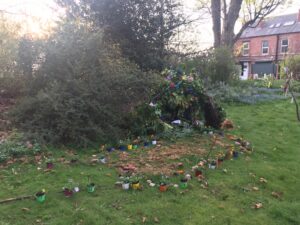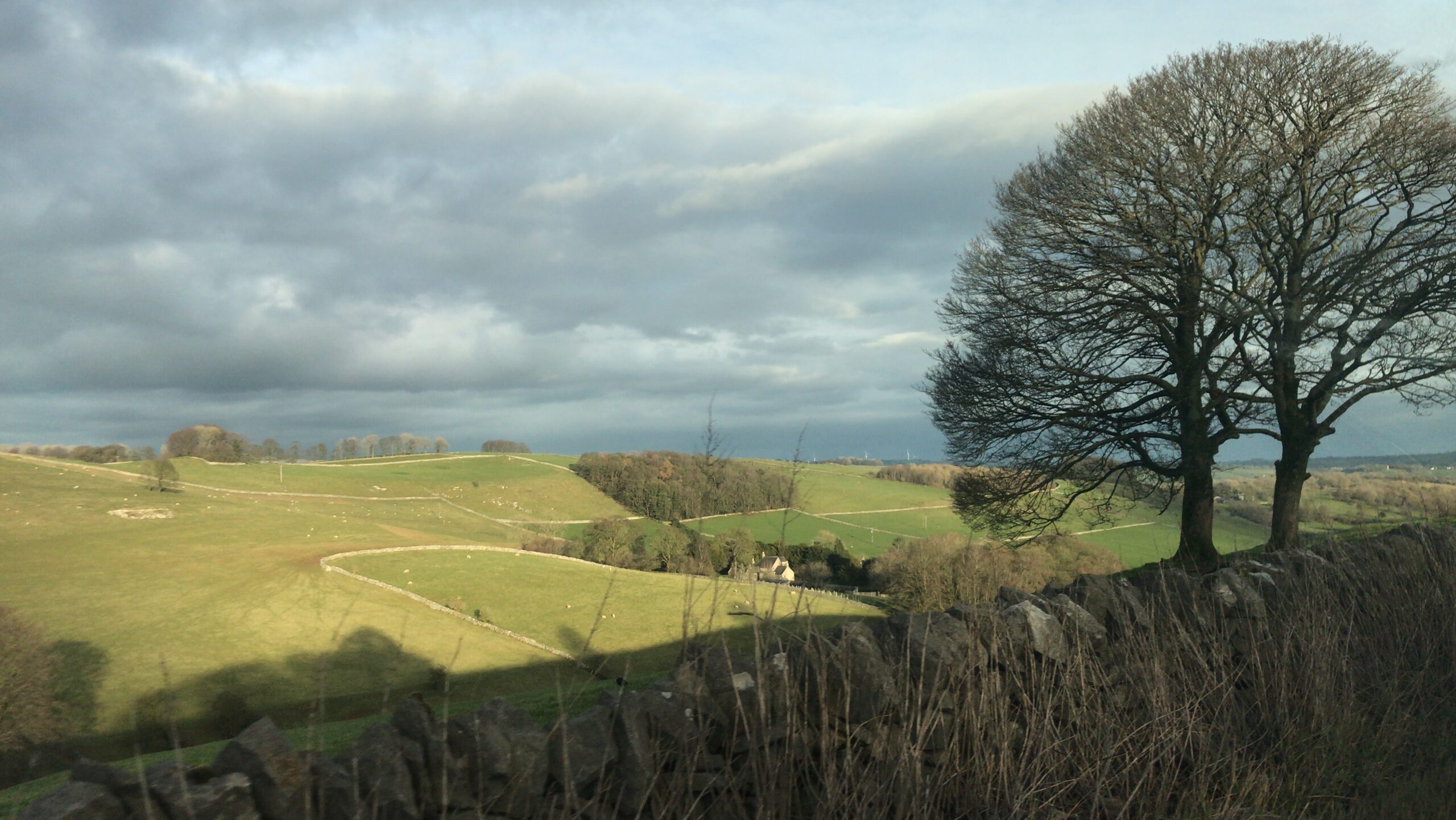
To watch this service on YouTube, please click here:
https://tiny.cc/walkleystmary-youtube
To download a copy of this week's order of service, please click here:
The Readings
Acts 9.1-20
Meanwhile Saul, still breathing threats and murder against the disciples of the Lord, went to the high priest and asked him for letters to the synagogues at Damascus, so that if he found any who belonged to the Way, men or women, he might bring them bound to Jerusalem. Now as he was going along and approaching Damascus, suddenly a light from heaven flashed around him. He fell to the ground and heard a voice saying to him, ‘Saul, Saul, why do you persecute me?’ He asked, ‘Who are you, Lord?’ The reply came, ‘I am Jesus, whom you are persecuting. But get up and enter the city, and you will be told what you are to do.’ The men who were travelling with him stood speechless because they heard the voice but saw no one. Saul got up from the ground, and though his eyes were open, he could see nothing; so they led him by the hand and brought him into Damascus. For three days he was without sight, and neither ate nor drank.
Now there was a disciple in Damascus named Ananias. The Lord said to him in a vision, ‘Ananias.’ He answered, ‘Here I am, Lord.’ The Lord said to him, ‘Get up and go to the street called Straight, and at the house of Judas look for a man of Tarsus named Saul. At this moment he is praying, and he has seen in a vision a man named Ananias come in and lay his hands on him so that he might regain his sight.’ But Ananias answered, ‘Lord, I have heard from many about this man, how much evil he has done to your saints in Jerusalem; and here he has authority from the chief priests to bind all who invoke your name.’ But the Lord said to him, ‘Go, for he is an instrument whom I have chosen to bring my name before Gentiles and kings and before the people of Israel; I myself will show him how much he must suffer for the sake of my name.’ So Ananias went and entered the house. He laid his hands on Saul and said, ‘Brother Saul, the Lord Jesus, who appeared to you on your way here, has sent me so that you may regain your sight and be filled with the Holy Spirit.’ And immediately something like scales fell from his eyes, and his sight was restored. Then he got up and was baptized, and after taking some food, he regained his strength.
For several days he was with the disciples in Damascus, and immediately he began to proclaim Jesus in the synagogues, saying, ‘He is the Son of God.’
John 21.1-19
After these things Jesus showed himself again to the disciples by the Sea of Tiberias; and he showed himself in this way. Gathered there together were Simon Peter, Thomas called the Twin, Nathanael of Cana in Galilee, the sons of Zebedee, and two others of his disciples. Simon Peter said to them, ‘I am going fishing.’ They said to him, ‘We will go with you.’ They went out and got into the boat, but that night they caught nothing.
Just after daybreak, Jesus stood on the beach; but the disciples did not know that it was Jesus. Jesus said to them, ‘Children, you have no fish, have you?’ They answered him, ‘No.’ He said to them, ‘Cast the net to the right side of the boat, and you will find some.’ So they cast it, and now they were not able to haul it in because there were so many fish. That disciple whom Jesus loved said to Peter, ‘It is the Lord!’ When Simon Peter heard that it was the Lord, he put on some clothes, for he was naked, and jumped into the lake. But the other disciples came in the boat, dragging the net full of fish, for they were not far from the land, only about a hundred yards off.
When they had gone ashore, they saw a charcoal fire there, with fish on it, and bread. Jesus said to them, ‘Bring some of the fish that you have just caught.’ So Simon Peter went aboard and hauled the net ashore, full of large fish, a hundred and fifty-three of them; and though there were so many, the net was not torn. Jesus said to them, ‘Come and have breakfast.’ Now none of the disciples dared to ask him, ‘Who are you?’ because they knew it was the Lord. Jesus came and took the bread and gave it to them, and did the same with the fish. This was now the third time that Jesus appeared to the disciples after he was raised from the dead.
When they had finished breakfast, Jesus said to Simon Peter, ‘Simon son of John, do you love me more than these?’ He said to him, ‘Yes, Lord; you know that I love you.’ Jesus said to him, ‘Feed my lambs.’ A second time he said to him, ‘Simon son of John, do you love me?’ He said to him, ‘Yes, Lord; you know that I love you.’ Jesus said to him, ‘Tend my sheep.’ He said to him the third time, ‘Simon son of John, do you love me?’ Peter felt hurt because he said to him the third time, ‘Do you love me?’ And he said to him, ‘Lord, you know everything; you know that I love you.’ Jesus said to him, ‘Feed my sheep. Very truly, I tell you, when you were younger, you used to fasten your own belt and to go wherever you wished. But when you grow old, you will stretch out your hands, and someone else will fasten a belt around you and take you where you do not wish to go.’ (He said this to indicate the kind of death by which he would glorify God.) After this he said to him, ‘Follow me.’
New Revised Standard Version Bible: Anglicized Edition, copyright © 1989, 1995 National Council of the Churches of Christ in the United States of America. Used by permission. All rights reserved worldwide. http://nrsvbibles.org
The Sermon
By The Revd Sue Hammersley, Priest in Charge
Will be uploaded after the service.
The Prayers
Prepared by Catherine
Risen Jesus,
When your disciples were confused about what to do next,
you appeared to them in their ordinary place of work,
helped them to achieve the extraordinary,
then set these everyday people the task of proclaiming your gospel,
baptising people in your name
and building your church.
We pray for ordinary churches and people everywhere,
continuing where the first disciples left off.
We pray for those preparing for baptism and confirmation
thinking especially today of baby Isobel and her family and friends.
We pray for our own church community here in Walkley.
Jesus, Lord of life,
In your mercy, hear us.
Risen Jesus,
When all his energy was being directed into persecuting your church,
you appeared to Saul,
changing his heart,
redirecting his zeal towards proclaiming your good news.
We pray for aggressors and persecutors in today’s world,
that their hearts might, too, be changed,
and that people everywhere might live in peace and harmony.
We pray for all those who are suffering as a result of aggression and persecution,
that they might receive sanctuary.
We continue to remember all those troubled places of our world...
Jesus, Lord of life,
In your mercy, hear us.
Risen Jesus,
You encouraged your first disciples
to work together as a team
to make decisions together
and choose suitable leaders.
We pray for our country and city
as we participate in local elections this week,
giving thanks for those prepared to represent their communities
and stand as candidates.
We pray that those elected
will serve their communities with wisdom and integrity
that all might flourish.
Jesus, Lord of life,
In your mercy, hear us.
Risen Jesus,
You cared for the poor, the sick and all in need.
We pray for those who need that care now.
We pray for all working to relieve sickness, poverty, and loneliness,
whether paid or unpaid,
and for the resources they need to care effectively.
In a few moments quiet, we think of any people or situations known to us personally.
Jesus, Lord of life,
In your mercy, hear us.
Risen Jesus,
By your resurrection you gave us hope
of life beyond the grave.
We pray for the souls of those who have gone before us,
thinking especially of those who have recently died,
that their loved ones might be comforted.
Jesus, Lord of life,
In your mercy, hear us.





